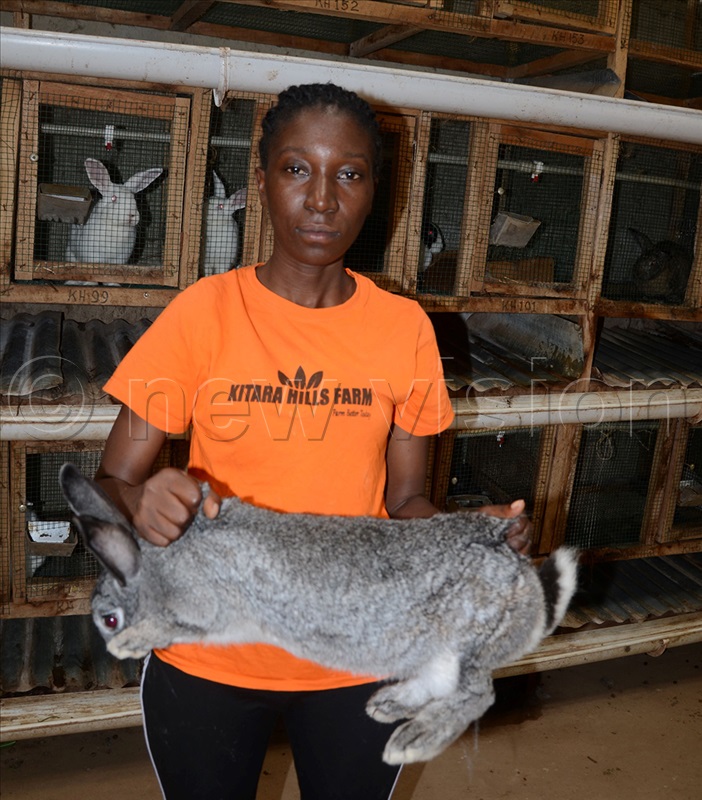By Umar Nsubuga
Naswirah Nalukwago, a commercial rabbit farmer says that anyone can become a commercial rabbit farmer.
“Rabbits can feed on weeds so you do not need to spend money on feeds, but for commercial purposes, you can grow carrots, cabbages among others,” she says.
She says rabbits have several characteristics that give them a competitive advantage over other livestock for meat.
Nalukwago says any rabbit farmer requires investing in structures, feeds, veterinary services and labour.
“If you want to become a commercial rabbit farmer, daily attention, record keeping and serious follow-up on breeding and maturity dates are the key aspects,” she advises.

There are many breeds but it’s good to start with New Zealand white because it’s a good breed for our environment.
According to Nalukwago, one rabbit can produce up to 30 kits in a year, exotic breeds are even more productive.
She says normal gestation is about 30 days. A kit (baby rabbit) can be weaned at about four to five weeks of age.
Ovulation begins 10 hours after mating. After mating, the female makes a nest and lines the nest with fur from her flanks and belly. This behaviour also exposes the nipples enabling her to better nurse the kits.
The male (buck) should, however, be kept separate from females. One male can serve 10 females. A farmer should be careful when taking a female to a buck because they sometimes fight.
The secret to successful rabbit rearing, according to Nalukwago is keeping the environment around the rabbits clean since most rabbit diseases result from poor hygienic conditions.
A rabbit hutch (house) can be made out of simple material like wood, so long as it can shield them from weather extremes and predators such as dogs.
Rabbits are sensitive to coldness and too much heat. So, with good housing, feeding and hygiene, you can prevent most of the diseases.
She says that the rabbits require a lot of drinking water if they are to produce large quantities of urine.
Nalukwago says that fermented rabbit urine contains nutrients needed for manure which supports vegetable and fruit growth.
Nalukwago says rabbit Urine contains the highest level of nitrogen compared to other farm animals, and this is because rabbits barely drink water. They pack it for sale and each jerrycan costs sh200,000.
A mature rabbit can produce up to 250ml of urine per day and 5 mature rabbits can produce up to one 1 litre of urine per day.





